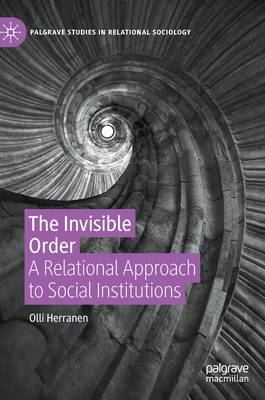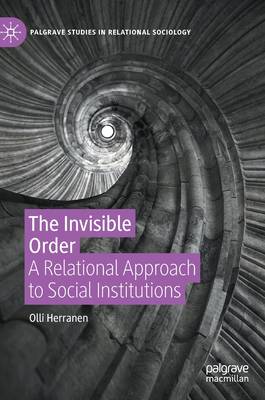
Je cadeautjes zeker op tijd in huis hebben voor de feestdagen? Kom langs in onze winkels en vind het perfecte geschenk!
- Afhalen na 1 uur in een winkel met voorraad
- Gratis thuislevering in België vanaf € 30
- Ruim aanbod met 7 miljoen producten
Je cadeautjes zeker op tijd in huis hebben voor de feestdagen? Kom langs in onze winkels en vind het perfecte geschenk!
- Afhalen na 1 uur in een winkel met voorraad
- Gratis thuislevering in België vanaf € 30
- Ruim aanbod met 7 miljoen producten
Zoeken
€ 213,95
+ 427 punten
Uitvoering
Omschrijving
The book addresses the problem of institutionalised order in modern capitalist societies with highly developed division of labour. Via thorough critique and reconstruction of neo institutionalist theory, classical social theories, and critical ideology theory, The Invisible Order introduces the first relational theory of social institutions to explain in detail how individuals end up encountering institutions as objective. Thus synthesising integrative and conflicting social relations, the work calls into question deeply rooted understandings in which society is variously construed as spontaneous equilibrium, solely conflict-driven, or a set of agent-based constructions. It offers a new take on the age-old questions of classical and critical social theory and on the fundamentals of institutional and organisational theory alike. This timely and useful relational examination of social institutions reveals how complex societies can keep functioning even though theirorders are constantly contradicted by multiple disordering endeavours and tendencies.
Specificaties
Betrokkenen
- Auteur(s):
- Uitgeverij:
Inhoud
- Aantal bladzijden:
- 267
- Taal:
- Engels
- Reeks:
Eigenschappen
- Productcode (EAN):
- 9783031164804
- Verschijningsdatum:
- 5/11/2022
- Uitvoering:
- Hardcover
- Formaat:
- Genaaid
- Afmetingen:
- 148 mm x 210 mm
- Gewicht:
- 494 g

Alleen bij Standaard Boekhandel
+ 427 punten op je klantenkaart van Standaard Boekhandel
Beoordelingen
We publiceren alleen reviews die voldoen aan de voorwaarden voor reviews. Bekijk onze voorwaarden voor reviews.









